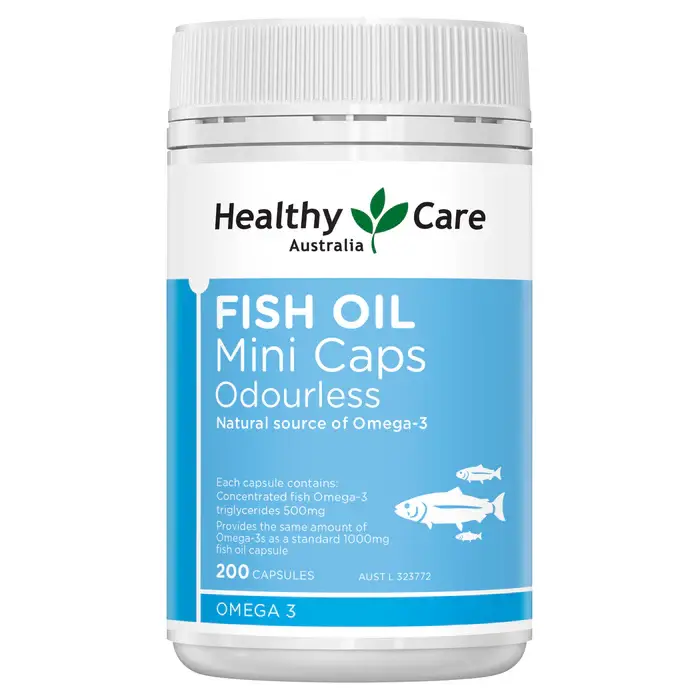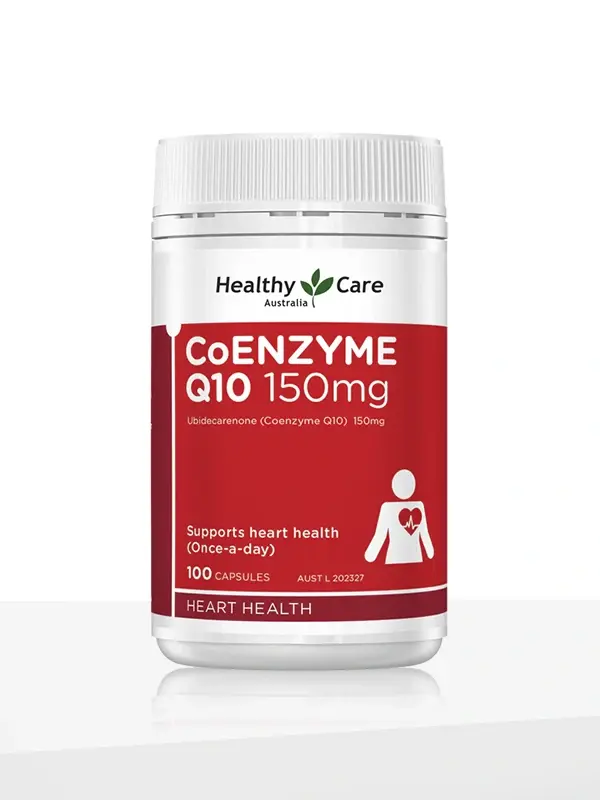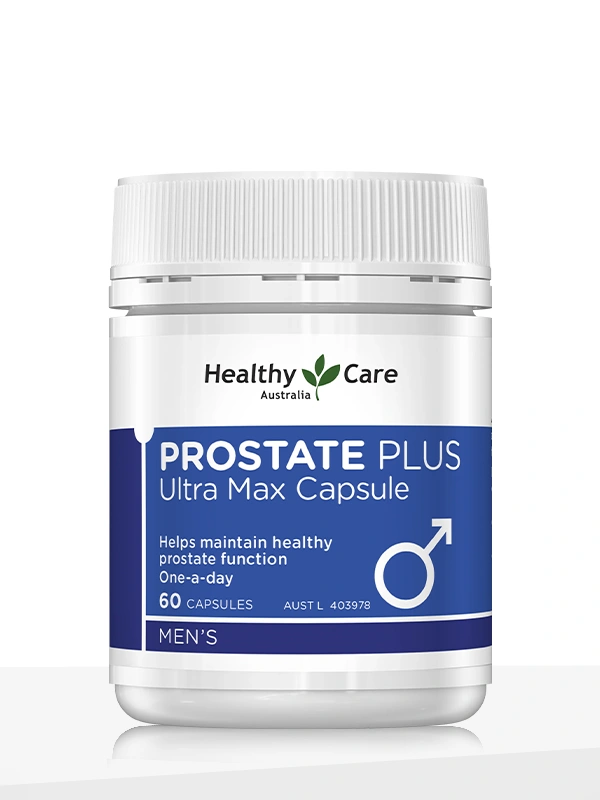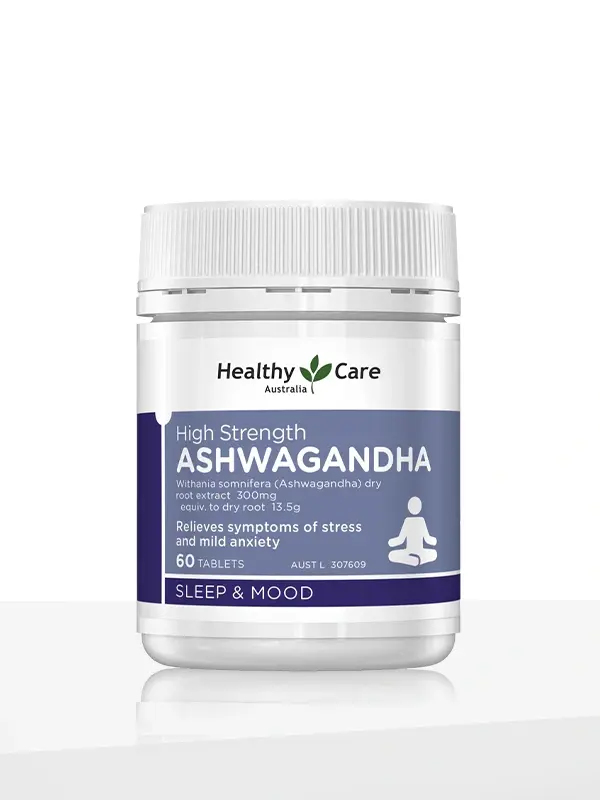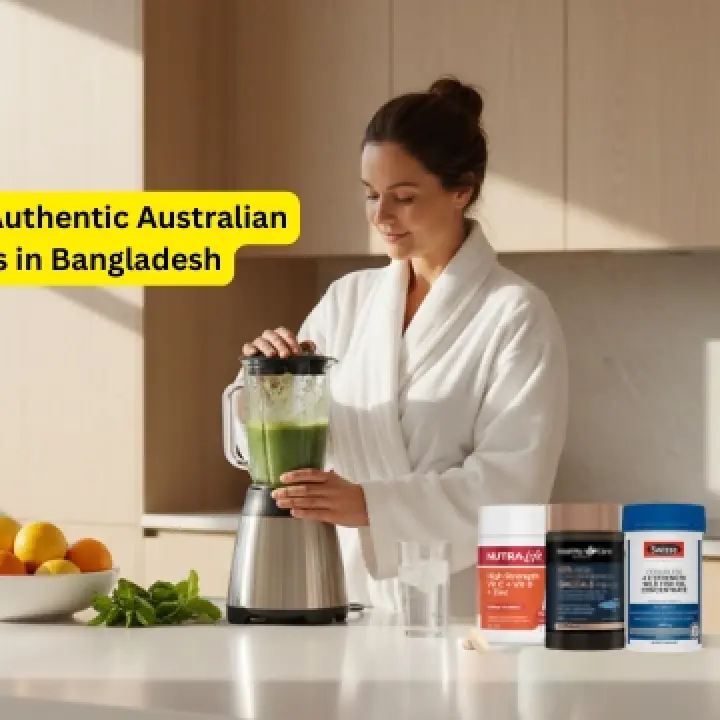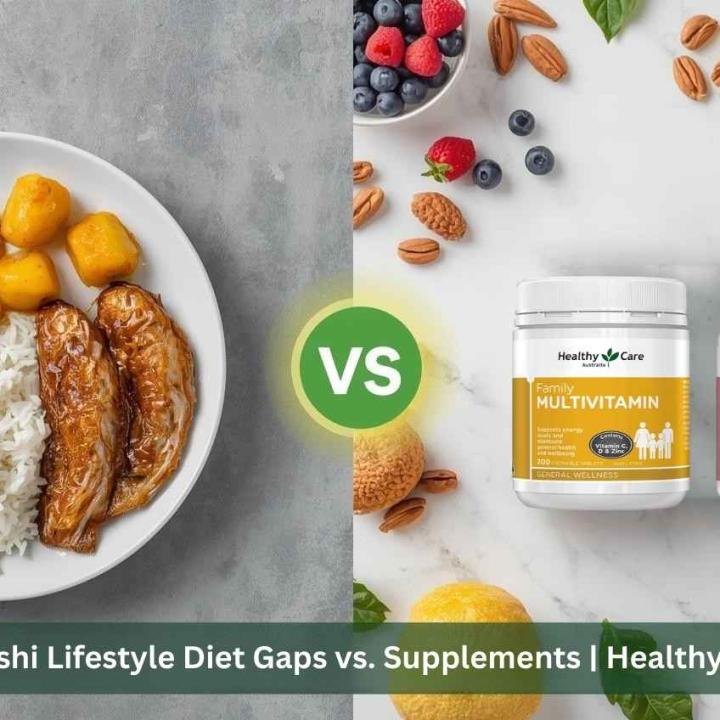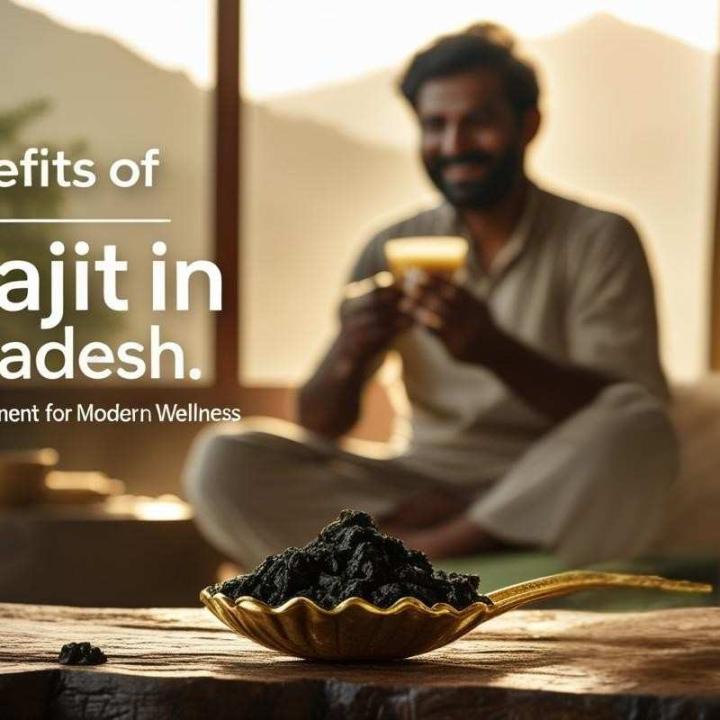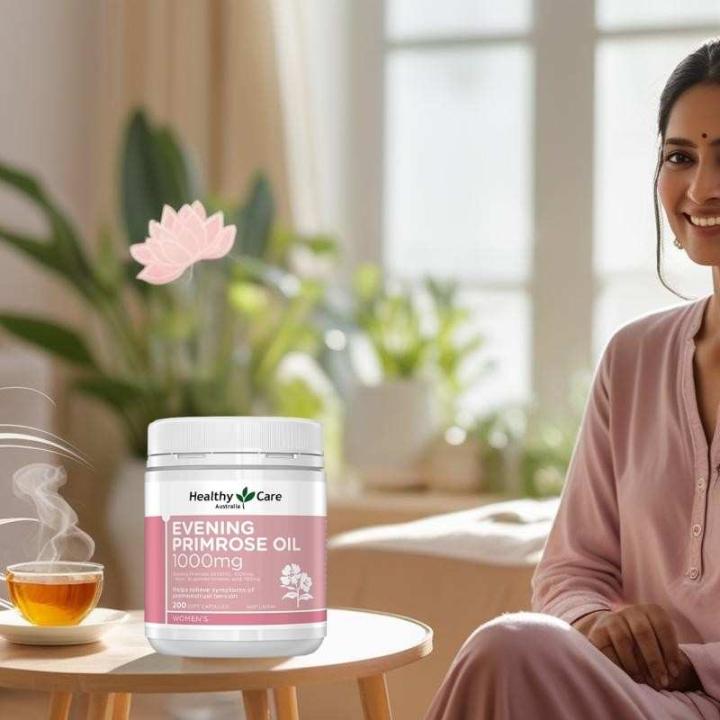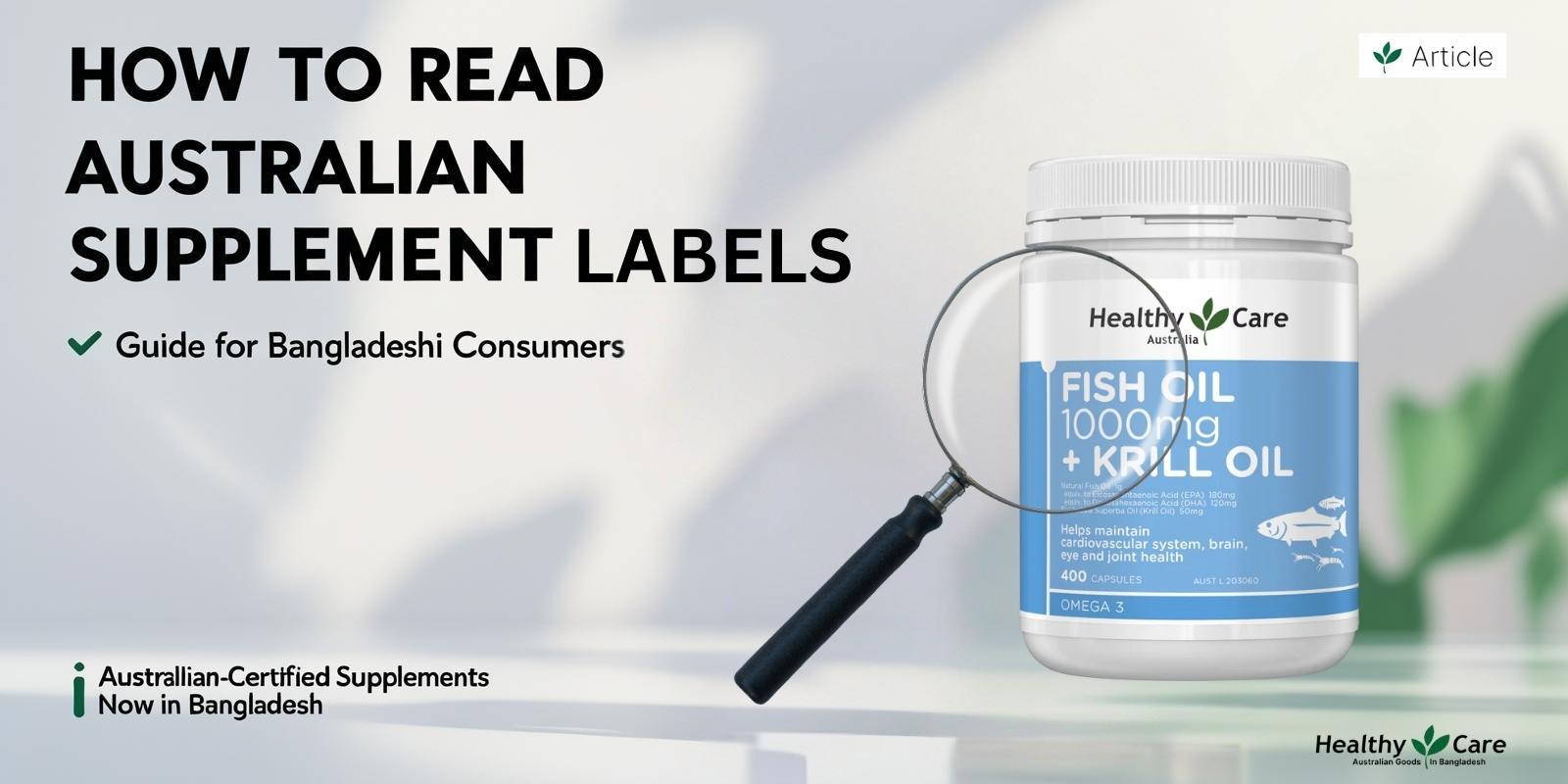
How to Read Australian Supplement Labels in BD
Written by: Farzana Rahman, MSc in Nutrition & Food Safety
Reviewed by: Dr. Md. Saifullah, MBBS, Clinical Nutrition Specialist
Introduction – Why Labels Matter
When you buy an imported supplement in Bangladesh, the label is your first line of defense against fake or low-quality products. Australian supplements, like Healthy Care, follow strict rules set by the Therapeutic Goods Administration (TGA). But for Bangladeshi consumers, these labels can sometimes feel confusing. This guide explains how to read Australian supplement labels so you can make safe, halal-conscious, and informed choices.
Key Sections on an Australian Supplement Label
- Product Name & Purpose – Look for the main function (e.g., “Super Spirulina – Supports Energy & Immunity”). Tells you what the supplement is designed for.
- Ingredients List – Active ingredients (CoQ10, Omega-3 DHA), inactive ingredients (capsule material, stabilizers). ⚠️ Check for allergens. ✅ Look for halal-friendly alternatives.
- Serving Size & Dosage Instructions – Explains how many capsules/tablets/scoops per day. Always compare with doctor’s advice.
- Nutrition Information Panel – Lists amounts per dose. Helps compare supplements. Check if dosage matches global guidelines.
- Certification Logos & Marks – Australian Made logo, TGA approval, Halal logo (if present).
- Batch Number & Expiry Date – Printed clearly. ❌ Avoid stickered or missing details.
- Storage & Warnings – Example: “Store below 25°C”. Look for disclaimers (e.g., “Not for under 12”).
How to Spot Fake vs Genuine Australian Supplements in BD
| Check | Genuine Australian Supplement | Possible Fake |
|---|---|---|
| Label Print | Clear, permanent, no spelling errors | Blurry, poor print, typos |
| Halal/TGA Logo | Certified, verifiable logos | Fake or missing logos |
| Batch & Expiry | Printed clearly on bottle | Missing or only stickered |
| Importer Sticker (BD) | DGDA-approved importer info | Missing/incorrect importer details |
| Price | Consistent with market | Too cheap to be true |
Example – Healthy Care Supplements in Bangladesh
Healthy Care Fish Oil Mini Caps Odourless - 200 Capsules
- Supports heart, joint, and brain health with pure omega-3. Odourless formula — no fishy aftertaste. TGA-certified, halal-safe.
- “Protect your heart and sharpen your mind, without the fishy burp.”
Healthy Care Coenzyme Q10 150mg – 100 Capsules
- Boosts cellular energy & heart vitality. Powerful antioxidant protection. TGA-approved for potency & safety.
- “Fuel your body’s natural energy engine — every capsule works at the heart of your health.”
Healthy Care Prostate Plus Ultra Max – 60 Capsules
- Supports prostate health & urinary function. With saw palmetto, zinc & antioxidants. Designed for men’s vitality over 40.
- “Stay strong, stay confident — protect your prostate health today.”
Healthy Care High Strength Ashwagandha – 60 Tablets
- Reduces stress, anxiety & fatigue naturally. Enhances mental clarity & calmness. Herbal, vegan-friendly, TGA-tested.
- “Turn stress into strength — discover calm with every tablet.”
FAQs – Reading Supplement Labels in Bangladesh
How do I know if an Australian supplement is genuine in BD?
Check for TGA approval, Australian Made logo, batch number, importer sticker, and expiry date.
Are all Australian supplements halal?
Not all. Always check halal certification or choose vegan-friendly ranges like Healthy Care.
What’s the most important thing on a supplement label?
The ingredients list and dosage instructions — they tell you what you’re really consuming.
Conclusion – Read Before You Buy
Halal certification and attractive packaging are not enough. To protect your health and faith in Bangladesh:
- Learn to read labels carefully.
- Verify TGA marks, batch numbers, and halal signs.
- Buy only from trusted sources like HealthyCare.com.bd.
🌱 With this knowledge, Bangladeshi consumers can avoid fakes, choose the right supplement, and ensure both safety and halal compliance.
Related Blogs
Disclaimer
This content is for educational purposes only. Always consult a doctor before starting supplements, and purchase only from official sources to avoid counterfeit risks.

